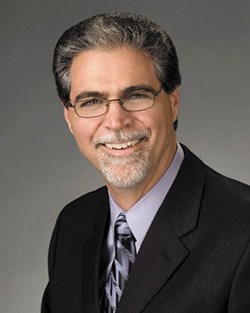Millennials and Boomers: Who is Mentoring Whom? (OPINION)
by December 8, 2014 12:00 am 121 views

When I met the mentor of my adult son I was reminded of how important mentor relationships are to our success. Some, like my son, seek out these relationships, while others, like me, simply stumble across them along the journey. I came across research that suggested that this may be a generational thing, with Millennials more inclined than Boomers to pursue mentors.
Did you know that 30 percent of Northwest Arkansas’ workforce is made up of Millennials and only 14 percent are Boomers? With NWA ranking 10th out of 175 similar metropolitan service areas on this stat, it is very likely that a renewed perspective on mentoring could be a game-changer for your organization.
Boomers like to say that they “paid their dues” just like everyone before them. In their world, time, loyalty, consistency and perseverance earned respect. They were around when entire floors of hardware were required to run computer programs far more simple than those on today’s smart phones. They gave birth to technology that put a man on the moon while Millennials nurtured it for a more closely interconnected and interdependent global society.
It is easy to polarize the five generations of today’s workforce. Saying all boomers carry flip phones, watch “Wheel of Fortune” and shave clean every morning would be like categorizing all Millennials as wearing skinny jeans, sporting scraggly beards and only communicating via 140-word-or-less texts. Sure, some of each of these generalizations may be true, but they may only serve to further the distance between the generations, at a time when the opposite is required.
Just as Boomers were able to reap the rewards of the Greatest Generation’s work, Millennials reap the work of Boomers. For Boomers to be frustrated with Millennials is to be frustrated with the society they helped create. For Millennials to disregard the Boomers is a failure to acknowledge the foundation on which they live and succeed. The truth is we really do need each other. And that’s where mentoring comes in. The mutuality of mentoring offers a powerful dynamic that allows both parties in the relationship to gain fresh insight.
Research indicates that Millennials actually prefer organizations that offer formal mentor programs. And while some consider Millennials to be somewhat naive about organizational politics, it may not be naiveté at all. It may be their grasp of this reality that has compelled many of them to launch entrepreneurial endeavors that facilitate the networking and relationships they crave (Facebook, LinkedIn, Instagram, Google+).
Boomers, on the other hand, probably gave little thought to the idea of mentors in their careers. When the term was used it often reminded them of the drawn-out apprenticeships that insisted they “pay their dues” before they could advance. They tended to take more of a Lone Ranger approach to their development and career growth, when it may have been more valuable to invest in and learn from relationships with mentors.
While it may be fun to point out the differences in the generations, this may do more to polarize than to benefit your organization. Consider beginning with “we” in mind. Help employees understand that we are comprised of people of varied backgrounds, interests, ages, worldviews and expectations. Seeing the world through another person’s eyes is the best way to communicate with them effectively. Mentoring relationships may be the very best way to embrace cultural differences and bridge generational gaps.
Whether you have participated in formal or informal mentor programs, you can probably identify the people in your life and career who have served in such a capacity. Though mine were not formal mentors, I can think of a solid half-dozen encouragers who challenged me to be better than I thought I could be, people who believed in me and gave me the opportunity to step up, people who would tell me the truth when I needed to hear it, who would kick me out of my ruts and set me back on the right track at just the right time. Some were much older. Some have already departed. Some are much younger. Some were from a completely different background and culture. All have provided insight and perspective that could be gained no other way. For that I am grateful.
As you recall these relationships, take the time to let them know how much you appreciate their insight, perspectives and encouragement.
Develop a formal or informal mentoring program for your organization. Creating avenues for people to learn from one another will be invaluable to everyone and will definitely help you attract this new workforce.
Pair up with someone from a couple of generations removed with an openness to learn and a commitment to share. You may find this to be one of the greatest privileges and learning opportunities of your career.
Tony Hawk is an executive coach and owner of Resources for Leading, an organizational development firm in Bentonville. More information is available at www.resourcesforleading.com or by calling 479-366-7692.
